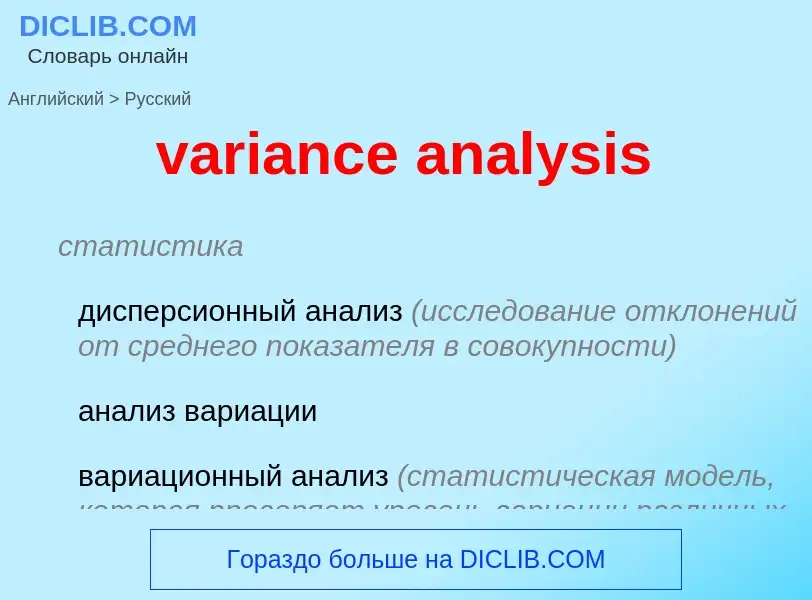Tradução e análise de palavras por inteligência artificial ChatGPT
Nesta página você pode obter uma análise detalhada de uma palavra ou frase, produzida usando a melhor tecnologia de inteligência artificial até o momento:
- como a palavra é usada
- frequência de uso
- é usado com mais frequência na fala oral ou escrita
- opções de tradução de palavras
- exemplos de uso (várias frases com tradução)
- etimologia
variance analysis - tradução para Inglês
статистика
дисперсионный анализ (исследование отклонений от среднего показателя в совокупности)
анализ вариации
вариационный анализ (статистическая модель, которая проверяет уровень вариации различных групп данных)
бухгалтерский учет
анализ отклонений (анализ отклонения фактической величины прибыли от запланированной или ожидавшейся; осуществляется путем разбиения общей суммы отклонения на подсуммы для выявления основных причин возникновения данного отклонения (напр., расчет отклонений прибыли из-за изменения цены и объемов реализации, отклонения прямых материальных затрат, отклонения прямых затрат труда, отклонения величины накладных расходов и т. д.))
синоним
Смотрите также
дисперсионный анализ
сокращение
analysis of variance
существительное
общая лексика
анализ вариантов
синоним
Definição
Wikipédia
Analysis of variance (ANOVA) is a collection of statistical models and their associated estimation procedures (such as the "variation" among and between groups) used to analyze the differences among means. ANOVA was developed by the statistician Ronald Fisher. ANOVA is based on the law of total variance, where the observed variance in a particular variable is partitioned into components attributable to different sources of variation. In its simplest form, ANOVA provides a statistical test of whether two or more population means are equal, and therefore generalizes the t-test beyond two means. In other words, the ANOVA is used to test the difference between two or more means.



